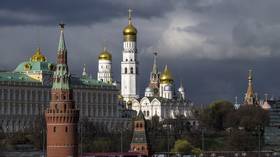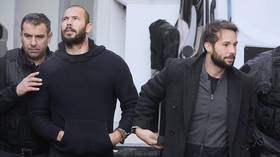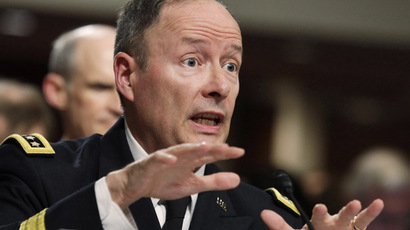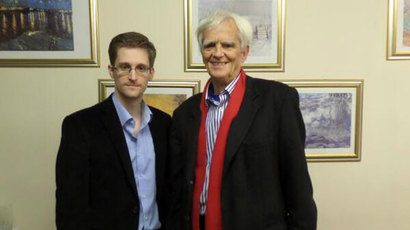Edward Snowden says calls for reforms prove his leaks are justified
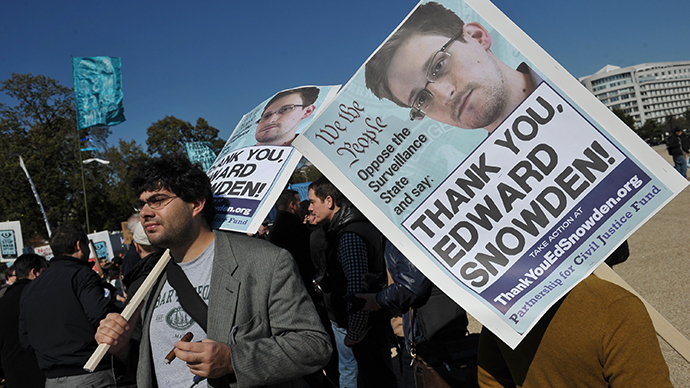
Debates about mass surveillance and calls for “reforms to politics, supervision and laws” mean leaks about US secret service were justified, a former NSA contractor, Edward Snowden wrote in his “Manifesto for the Truth”.
In his opinion piece, published in German Der Spiegel news
magazine on Sunday, Snowden writes that his revelations have in
fact been useful and society will benefit from it.
"Instead of causing damage, the usefulness of the new public
knowledge for society is now clear because reforms to politics,
supervision and laws are being suggested," the ex-CIA
employee and NSA contractor wrote, as cited by Reuters.
Spying as a global problem requires global solutions, he said, stressing that "criminal surveillance programs" by secret services threaten open societies, individual privacy and freedom of opinion.
"Citizens have to fight against the suppression of information about affairs of essential importance for the public,” Snowden said in his five-paragraph manifesto. Hence, “those who speak the truth are not committing a crime."
Even with the existence of mass surveillance, spying should not define politics, Snowden said.
"We have a moral duty to ensure that our laws and values limit
surveillance programs and protect human rights," he wrote.
The type of persecution campaigns that governments started after
being exposed, and threats of prosecution against journalists,
who blew the whistle, were “a mistake” and did not
“serve the public interest,” Snowden concluded.
But “at that time the public was not in a position to judge the usefulness of these revelations. People trusted that their governments would make the right decisions," he said.
In June Edward Snowden disclosed secret US surveillance programs and fled to Hong Kong and then to Russia. In early August, Snowden was granted temporary asylum, which can be extended annually.
He told The Guardian newspaper that he was “really disillusioned” about how the US government functions and what impact it has in the world.
Snowden’s revelations of the US allegedly scanning emails and
tapping the phones of world leaders' phones, provoked scandals
between the US and a number of countries in Europe, Latin America
and Asia.
Snowden allegedly even said he is ready to testify over Washington's probable wiretapping of German Chancellor Angela Merkel’s phone.
EU heads of states say their relations with the US have been undermined by reports of NSA spying on European leaders and ordinary citizens.
On November 2, Germany and Brazil submitted a new draft
resolution to the UN General Assembly which calls for an end to
excessive electronic surveillance, data collection, and other
snooping techniques.


